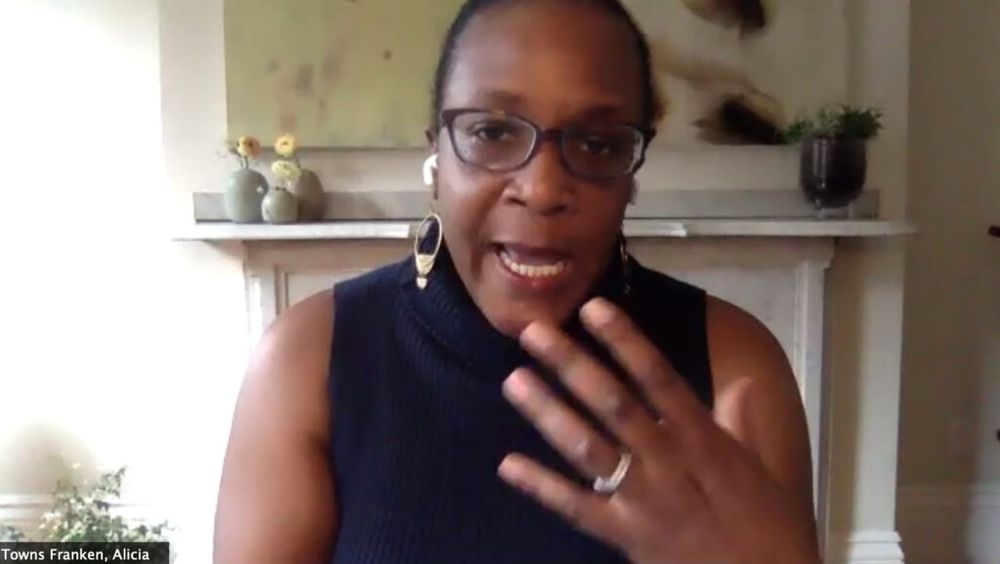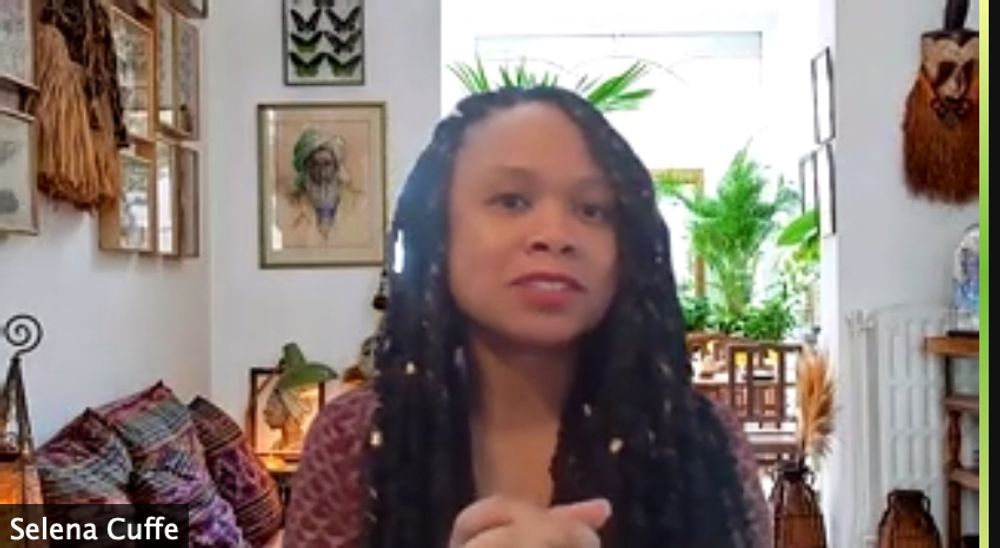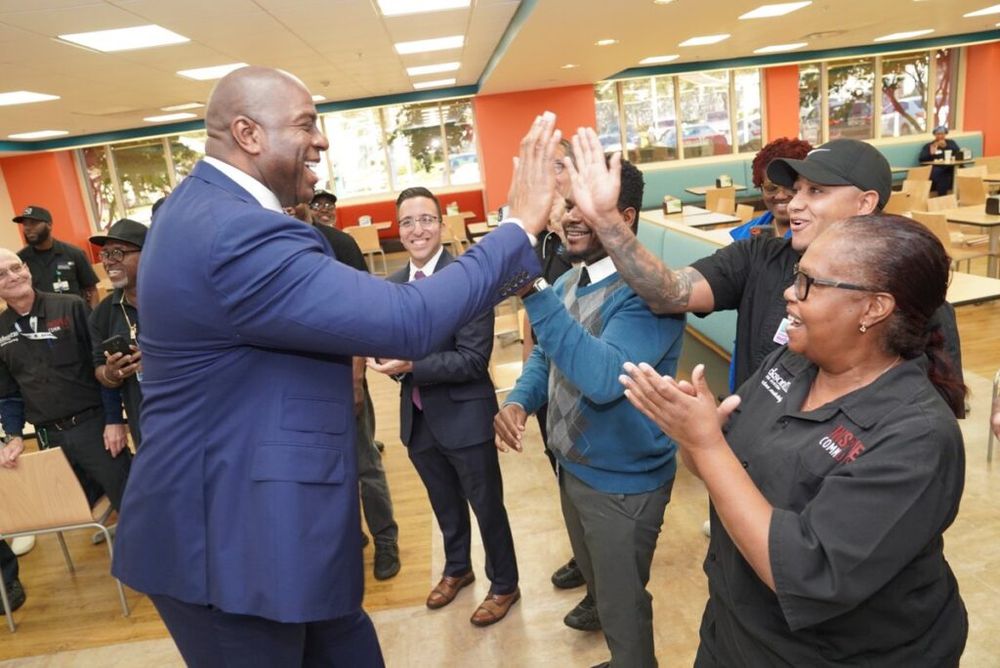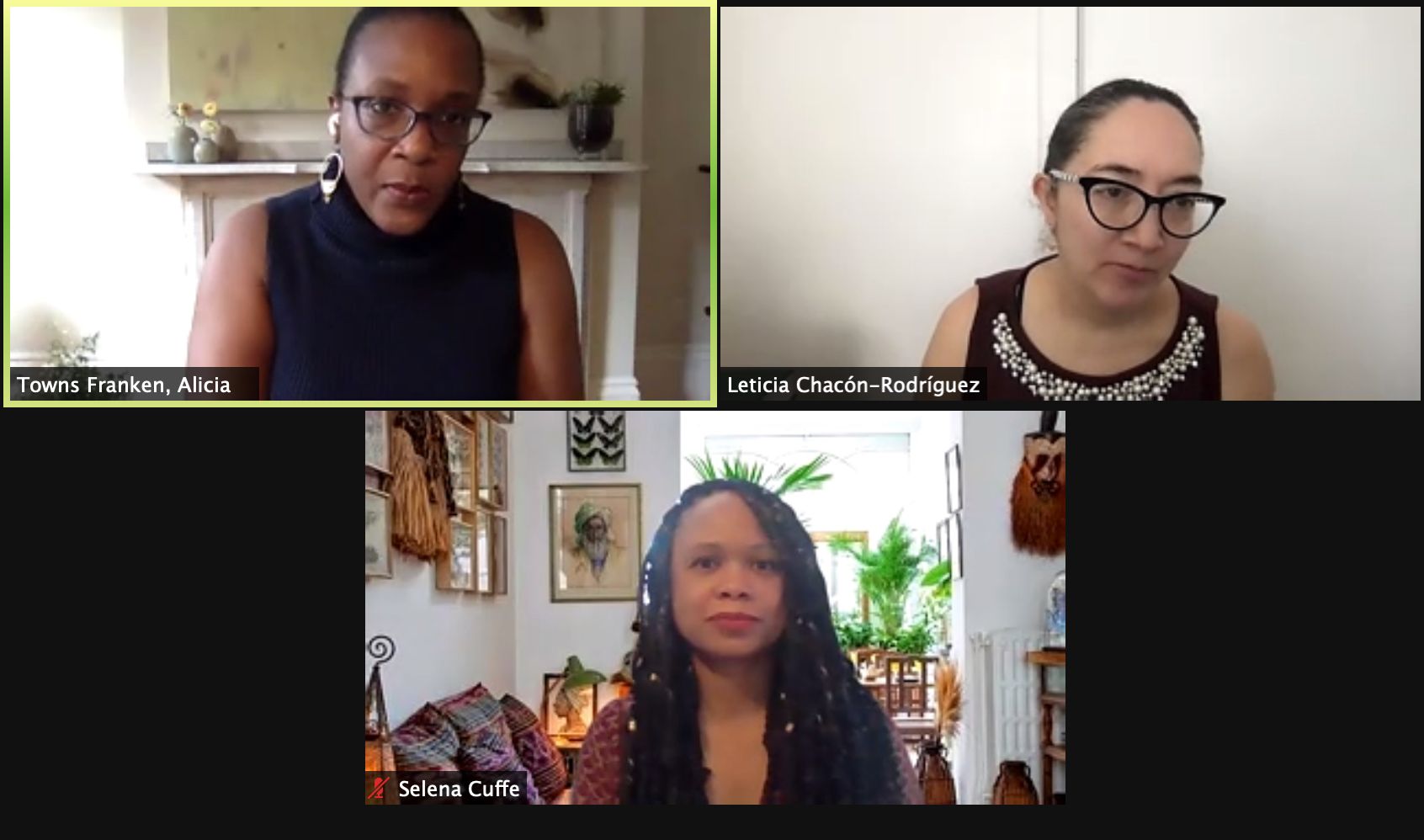Leticia Chacón-Rodríguez, winery manager and winemaker, University of California, Davis, Selena Cuffe, founder of Heritage Link Brands and president of SodexoMAGIC and Alicia Towns Franken, vice president for wine at US wine can brand, Archer Roose, and a board member of Wine Unify, were all able to share their experiences of working in wine and what changes they want to see happen.
I wanted to “normalise the idea of a black woman being in charge of wine” is how Alicia Towns Franken opened the diversity debate at Wine Future 2021. In her case she was talking about being head of wine at a leading premium US steak restaurant, but even though she had the position, the job title and the responsibilities, she still felt like she had to go out there and “prove myself table by table – it was exhausting”.
That statement very much captured the experiences of all three women on the panel of what it is like to be black working not just in the wine industry, but in any front line role. You have to prove yourself on a daily basis.

Alicia Towns Franken was able to share at Wine Future 2021 her experiences of what it is like even when you have a position of responsibility as a black person working in the wine industry and hospitality
Towns Franken said the last year has not just been a unique year in terms of doing business and living our lives, but it has also given the space and time for these important societal and culturalissues to be raised and amplified, even though, sadly, it came on the back of the murder of George Floyd in the US and the rise and impact of the Black Lives Matter movement.
The very fact Wine Future dedicated the time and space during its four day online conference to raise and address diversity and inclusion in the sector, shows it has now become as important an issue for debate in the global wine industry as climate change, sustainability and the economy.
Yet we have to remember for all the good and positive steps being taken now to put diversity and inclusion on the wine industry’s agenda, it was not an issue that was being discussed in all the major wine events, exhibitions and conferences – and to be fair the trade media – before 2020. It was clearly there, but for the vast majority of the white wine industry it was not an area that was deemed necessary to talk about, even though it was sitting there in plain sight.
Now diversity and inclusion in on the agenda there is no going back, agreed the panel. It’s why new bodies like Wine Unify, on which Towns Franken is a board member, can potentially do so much in bringing black and BIPOC communities together, and “elevate and amplify” their voice through education and a platform to share experiences.
“We need to bring more voices to the table. There is currently a huge barrier to wine,” she added.
Good business sense
The need for the wine industry to reach out to new audiences is not only the right thing to do, it also makes economic sense, considering the numbers of people that are leaving the category, attracted to drinks and brands that appeal to them both as drinks, but also sectors they can relate and engage with, added Towns Franken.“A new generation of drinkers will bypass gatekeepers who they think are letting them down,” she said.

Selena Cuffe said businesses can be 35% more profitable by having a more diverse workforce
Selena Cuffe said it has been proven time and again across other business sectors that those companies with an effective diversity and inclusion strategy are more profitable – up to 35% in some cases, she stressed. “But just bringing in a black face is not enough in itself,” she added.
Towns Franken agreed: “There is a lack of black faces in the wine industry. We are leaving a lot of money on the table. We should want everyone to drink wine, not just a set group of people.”
By having a more diverse consumer base means the industry as a whole will improve and be a “richer” place for all, she added.
Cuffe said the onus was on everyone in the wine industry to play their part. “It requires people at all points of the supply chain and at all levels,” to do a better job at understanding the issues, listening to what people have to say and then making practical changes in how you work and behave to improve the overall situation, she added. “It’s time to move the pedal and take action.”
More resources
Leticia Chacón-Rodríguez said it was important to make clear that “equity” does not necessarily mean inclusion and the wine industry needs to do more to “allow more people at the table”.
That means businesses and organisations need to “give more resources” that will help share knowledge and understanding of what needs to be done. Practical steps that will help “break the fences” that currently exist so that can “understand and respect each other”.
Everyone, she added, will also have their own perspective and experience when it comes to diversity and inclusion. By listening, talking and opening yourself up to all those different points of views and cultures is what is ultimately going to have a difference. She said her experience of being a Mexican living in the US is different to what other people in the wine sector have.
Towns Franken agreed there was a big “difference between bring diverse and being inclusive” and it was an important distinction that businesses need to understand.
Wendy Petersen, transformation operations manager at the South African Wine Industry Transformation Unit, said in a separate Wine Future session, that the inclusion debate also needs to be widened out in the industry to include land and the rights over who owns and can manage vineyards to grow grapes and make wine in the first place. Inclusivity when it comes to land does not just mean colour, she stressed.

The wine industry should listen and take inspiration from what US basketball player Magic Johnson is doing to make business leaders understand their responsibilities when it comes to diversity in their workplaces
As well as her role with Heritage Link Brands, that only works with and sells female-owned wine brands, Cuffe is also part of former US basketball player, Magic Johnson’s SodexhoMagic organisation, that helps invest in diversity and community schemes. She said it is inspiring to see the impact and drive that Johnson has and how getting people with power to listen is hard even for someone with his influence. But if we are going to see real change then it “requires everyone and those white men in power to be listening” and being “part of” that change, she said.
“We need people to be accomplices not just allies. To be part of he solution,” added Chacón-Rodríguez.
Real and practical goals
Liz Thach, professor of wine and management at Sonoma State University said, in a separate Wine Future session, that It is one thing talking about diversity and inclusion it is quite another to deliver real action and change. It’s why she believes there needs to be “measurements” in place in order “to keep track of how inclusive we are being – otherwise it fades away”.
Towns Franken agreed: “What we are doing should be ambitious, but there should be some goals, some time bound target, if we want to be truly recognised as a world class industry.”
Change also needs to be at all levels, added Thach, and not just left to the big multinationals, but also involve small wineries and businesses. “Their leaders need to think about how we can be inclusive and what goals we can put place”, she said.
To close Towns Franken said: “There is no greater power than diversity, it makes us all stronger and the more diverse we are, the more profitable we are.”
- You can follow up on the other talks and debates held at Wine Future 2021 at its website here.































